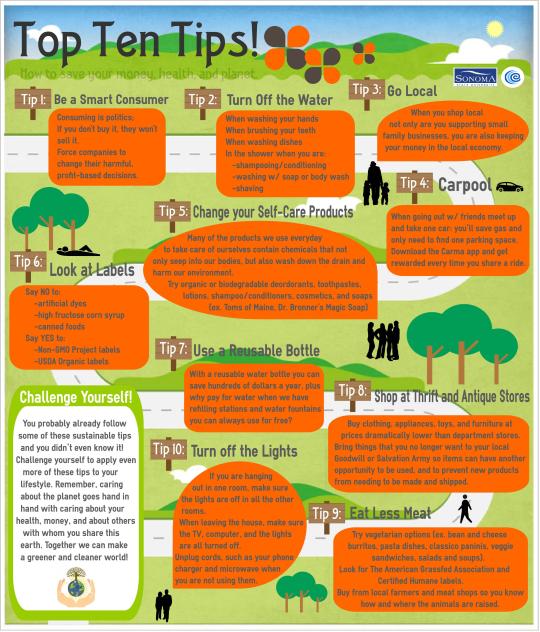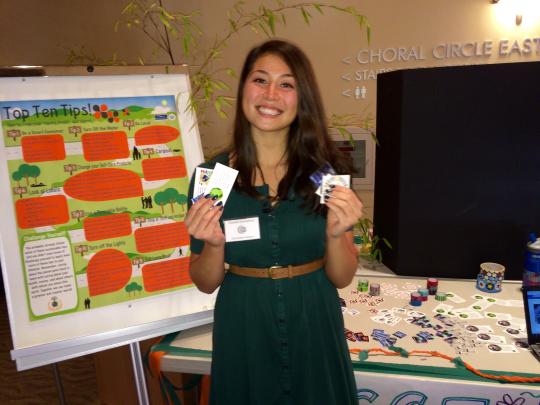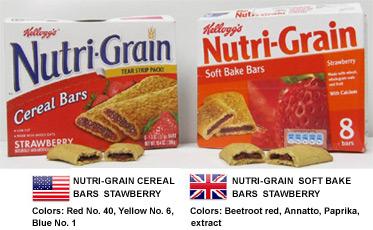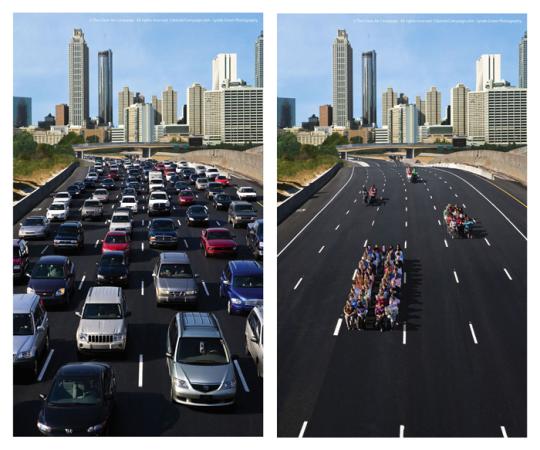Top Ten Tips: Simple Ways to Save Your Health, Your Money, and Your Planet
Today it is easy to get overwhelmed by all the talk about climate change and the California drought, but for many of us the challenge isn't caring about these issues, the challenge is "how do I become apart of the solution?" There are many paths that lead to a more sustainable lifestyle, but to help you get started here are 10 of the simple ways you can tweak your daily routine to not only benefit your health, but also the planet. The individual decisions you make may feel insignificant, but imagine if everyone made the effort to make these small changes! Together we have the power to become a sustainable species once again.
1. Be a Smart Consumer:
Consuming is Politics.
-
Every time you buy something it's like voting. The decision of a company to use better ingredients, improve the treatment their workers, or regulate their environmental impacts are all based on what the public wants.
If you don't buy it they won't sell it.
-
If Coca-Cola wasn't getting away with using high fructose corn syrup in their sodas they would have switched back to using real cane sugar.
-
If McDonalds had seen a decrease in sales after the damaging health effects of consuming their products was revealed to the public, they would have changed their policies.
Buy products in bulk and use Tupperware.
-
So much plastic is wasted in the packaging and individual wrapping of food products. When shopping for snacks, instead of buying a big box filled with individually wrapped portion sizes, try choosing products with one layer of wrapping and using Tupperware to make the serving size you want.
Avoid take-out boxes.
Though having leftovers is great, a lot of unnecessary plastic, paper, and styrofoam is wasted when transporting your food from the restaurant to your home. Try bringing a container from home; the restaurant saves money while you avoid the waste.
2. Turn off the water during your shower
when you are:
- shampooing and conditioning your hair
- washing with soap or body wash
- shaving (fill a small cup with water then dip your razor in to clean it)
Everyone likes a long hot shower, but by turning the water off when its not being used you can still enjoy taking your time and not waste unnecessary water. (This tip also applies to brushing your teeth, washing your hands, and washing dishes!)
3. Look at your food labels:
If you can't pronounce an ingredient, chances are you probably shouldn't be eating it. Everyone wants to sustain their health but it's really difficult when the majority of the food being sold in supermarkets contains harmful and cheap ingredients. The sooner you start standing up to companies who care more about a profit than you, the sooner you take control of what goes into your body.
Say NO to:
Artificial Dyes
- Commonly used food dyes, such as Yellow 5 and Red 40, are made from petroleum which has been linked to health problems such as hyperactivity in children, cancer, and allergic reactions.
- Food dyes also serve to deceive consumers: they are often used to simulate the presence of healthful, colorful fruits and vegetables, instead of simply just using real fruits and vegetables. [1]
High Fructose Corn Syrup(HFCS)
- The corn industry has gone to great lengths trying to convince Americans that high fructose corn syrup is not harmful. The sugars are extracted from corn stalks through a chemical enzymatic process, which is far from "natural" and NOT the same as cane sugar. HFCS also contains contaminants, such as Mercury, that are not regulated by the FDA. [2]
Canned Foods
- I wish it wasn't true but the resin linings of tin cans contain bisphenol-A (BPA), a synthetic estrogen that has been linked to health problems ranging from reproductive problems to heart disease, diabetes, and obesity. Acidity is what causes the BPA to leach into your food, so if you do buy canned goods stay away from things like tomatoes and fruits. [3][4]
Say YES to:
Non-GMO
- In the U.S., GMOs are in as much as 80% of conventional processed foods and there is no law in place requiring companies to tell us which products contain them! Almost all commercial GMOs are engineered for herbicide tolerance to withstand the intense pesticides of chemical agriculture. [5]
- The Non-GMO Project is a non-profit organization with a mission of protecting and giving consumers an informed choice, and their labels are found on every product they approve. [6]
USDA Organic
- Organic agriculture uses production methods that preserve the environment and avoid most synthetic materials, such as pesticides and antibiotics.
- The USDA has standards that regulate the product from the farm all the way to your table, and their labels can also be found on every product they approve. [7]
4. Get a Reusable Bottle:
Replace single-use plastic water bottles once and for all! Did you know it takes 3 liters of water to bottle just 1 liter of water? [8] Plus 71 million barrels of oil are wasted each year just to produce and transport the amount of plastic water bottles Americans consume.[9]
- With a reusable bottle you can save hundreds of dollars a year! Why pay for water when we have refilling stations and water fountains on campus that you can always use for free? [10][11]
- Examples of stylish and affordable brands are: CamelBak, Nalgene, and Takeya.
- Also think about converting to reusable coffee mugs and soup thermoses: you'll never have to waste disposable containers again!
- Campus Perks: Charlie Browns Cafe, Toast, and the Student Center Cafe give discounts for bringing your own reusable coffee mug.
5. Carpool as much as possible:
Not only is gas expensive, but car emissions alone produce over a fifth of the carbon monoxide and nitrogen oxides in our atmosphere and account for almost 30% of all U.S. global warming pollution. [12]Link text[13]
Carma
- Install the Carma app on your smartphone and get rewarded every time you decide to share a ride with a friend. After your first 25 trips you get a $25 Amazon gift card and every time you ride with someone new you get an additional $10 to Amazon!
Fill it up.
- Next time you and your friends are going out for lunch or a night on the town, meet up and take one car instead of meeting there. You save gas and the hassle of finding multiple parking spots.
6. Go Local:
Go Local is a network of locally-owned businesses, residents, non-profit organizations, and government agencies here in Sonoma County who support our local economy and promote sustainable practices. Around here we are spoiled with options of places to eat out and stores to shop at so why not take advantage of it!
Choose Local Options.
- Go to local restaurants instead of chain restaurants, and shop at local businesses instead of big-box stores.
- Go to the Sonoma County Go Local Website to get a list of all the restaurants and businesses in the county directly contributing to the local economy.
Fast-Food Restaurant Wages are Unacceptable.
- With average annual wages of $18,880, fast-food workers who provide all the income in their households would only be able to support one other person without falling into poverty. [14]
The Environmental Impact of Chains.
- When big-box retail stores locate in farmland, wetlands, or green space, they eliminate natural resources and open space. According to the American Farmland Trust, the United States loses 3,000 acres of productive farmland to sprawl every day. This is the equivalent of all the acreage of Delaware every year. [15]
-
Still not convinced?
Check out the Institute for Local Self-Reliance's Top 10 reasons to support locally owned businesses.
Economic Impacts of Local Businesses vs. Chains:
Chains may have more of an impact than you thought..
Civic Economics did a study in San Francisco which found that the city remains a stronghold for locally owned businesses. Here are some of the facts they found:
- Every $1 million spent at local bookstores creates $321,000 in additional economic activity in the area, including $119,000 in wages paid to local employees. That same $1 million spent at chain bookstores generates only $188,000 in local economic activity, including $71,000 in local wages.
- For every $1 million in sales independent toy stores create 2.22 local jobs, while chains create just 1.31.
- If residents were to redirect just 10 percent of their spending from chains to local businesses, it would generate $192 million in additional economic activity in San Francisco and almost 1,300 new jobs.
- Full Report
Big-Box Store Wages and Connections to Poverty:
Another study by Civic Economics, found that national retail and restaurant chains generate fewer ripple effects in local economies by procuring less, banking less, contributing less, and participating less in the local community. UC Berkeley's Center for Labor Research and Education did a report on the effects that big-box stores, focusing mainly on Walmart, have on the communities they occupy...
- Many big-box stores pay lower wages and offer less health coverage to their employees compared to other retail businesses.
- As a result of lower compensation, these workers make greater use of public health and welfare programs compared to retail workers as a whole, transferring costs to taxpayers.
- Studies of Walmart prices find them to be 8 to 27 percent lower for food compared to major supermarkets, but this corporate advantage forces local competitors to reduce its worker's wages, as well as its prices.
- Full Report


Author: Claudia Sisomphou





